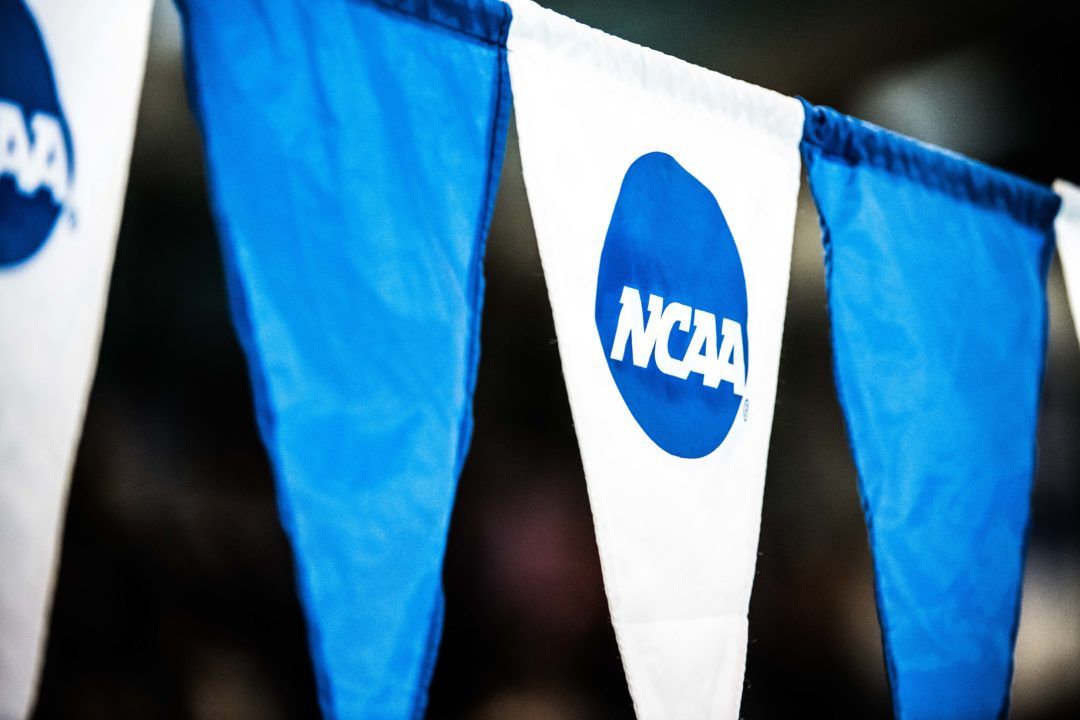Representatives from the five major NCAA conferences voted this week to require schools to make mental health services and resources available for student-athletes, and also to move forward with reforms on rules about student-athletes relationships with agents.
The reforms came out of the fifth annual autonomy session. The NCAA authorized schools in its five major conferences – the ACC, Big Ten, Big 12, SEC and Pac-12 – to create some of their own rules and reforms, and each year’s autonomy session has brought forward reforms to improve student-athlete experience. The sessions include 80 voting parties: 65 representatives from schools, one from each institution in the power-5 conferences, plus 15 student-athlete representatives.
This year, mental health resources were the key change. Schools are now required to distribute educational materials to student-athletes and coaches, including a guide to the various mental health resources that are available on that school’s campus. The mental health aspect passed unanimously, getting votes from all 80 representatives, according to ESPN.
The session also included a resolution that moves forward reforms to student-athlete relationships with agents. Representatives “passed a resolution committing the five conferences to bring forward legislation that will redefine rules concerning agents and advisors to assist student-athletes with career planning and decision making,” per a press release from the conferences.
The other change noted in the press release is that student-athletes can now receive financial assistance for room & board over the summer, even if they are not enrolled in summer courses.
You can see the full press release below:
ORLANDO – For the fifth year in a row, representatives of the Autonomy Five conferences met at the NCAA’s annual convention to approve additional protections and benefits for students who play intercollegiate sports.
This year, schools voted to require that institutions make mental health services and resources available for student-athletes, and passed a resolution committing the five conferences to bring forward legislation that will redefine rules concerning agents and advisors to assist student-athletes with career planning and decision making.
In an effort to further strengthen the mental health services provided on campuses, institutions will annually distribute mental health educational materials and resources to student-athletes, coaches, administrators and other athletics personnel. This includes a guide to the mental health resources available at the institution and information regarding how to access them.
Representatives also approved a proposal to allow student-athletes to receive room and board expenses to participate in summer athletic activities while not enrolled in summer school.
In addition, several autonomy proposals were adopted via electronic voting last week, including legislation focused on campus visits, complimentary admissions for athletic contests, and permissible nutritional supplements.
“The health and well-being of student-athletes, including their mental health, is paramount to our mission in intercollegiate athletics,” the five commissioners of the ACC, Big 12, BigTen, Pac-12, and SEC said in a joint statement. “For the past five years, the Autonomy process has allowed our institutions to adopt meaningful reforms that continue to improve the collegiate experience for current and future student-athletes.
The meeting concluded on Thursday, January 24 in Orlando, Fla.
Previously-adopted reforms include protecting athletic scholarships from being canceled due to athletic performance, providing full cost-of-attendance scholarships, changes to students’ schedules allowing them to have more free-time away from mandatory sports requirements, and for the first time ever, a new structure that allows students to vote on legislative matters. Last year’s meeting resulted in additional health care protections, including medical costs for athletic injuries that are covered by the institution.
The following is a summary of the reforms that have been put in place:
HEALTH CARE PROTECTIONS – 2018
· Recognizing that some students who are injured playing sports need medical treatment after they have left school, the conferences adopted a measure to provide treatment for at least two years after the student has left his or her institution.
TIME BALANCE REFORMS – 2017
· The Autonomy Five conferences, in consultation with students, coaches, faculty and administrators, approved changes giving students more time to pursue academics, work, internships, or additional rest and recovery.
· Students who play sports will have an additional 21 days away from athletics, in most cases.
· Student-athletes will be involved in the establishment of their schedules, allowing for more transparency for student-athletes than ever before.
COLLEGIATE ELIGIBILITY – 2016
· Prior to full-time collegiate enrollment, an individual who is drafted by a professional baseball team may now be represented by an agent or attorney during contract negotiations, without impacting future collegiate eligibility.
CONCUSSION PROTOCOL & INDEPENDENT MEDICAL CARE – 2016 & 2015
· To better protect the safety of students competing in athletics, medical officials at each school have “unchallengeable autonomous authority” in deciding a student’s ability to play a sport.
· A Concussion Safety Protocol was established to review each institution’s concussion management plan.
COST OF ATTENDANCE REFORMS – 2015
· For the first time in history, students who play sports at an Autonomy Five institution are receiving full cost of attendance benefits as part of their athletic scholarship.
· These students can receive stipends to cover expenses in addition to their scholarships.
· In total, with scholarships and cost of attendance stipends, students may receive benefits for tuition, fees, room, board, books, transportation, general supplies, and personal expenses, allowing many of them to graduate debt-free.
MULTI-YEAR SCHOLARSHIP REFORMS – 2015
· The Autonomy Five conferences voted to guarantee that athletic scholarships cannot be canceled for poor athletics performance.
